In Ukraine, babies are born into terrifying world of war
Baby Hanna is one of the newborns at a maternity hospital in Shostka. Hours after her birth, Hanna is not only experiencing her mother’s warmth, but also the panic of evacuation.
Shostka, a city in the Sumska region, located around 40 kilometres from the border, often comes under attack. Air sirens sound frequently here. As soon as they start, doctors at the Maternity Department of the Shostka Central District Hospital jump into action, escorting the pregnant women, women in labour and their visitors to the basement.
There is no equipped bomb shelter on the ward, which is why the dark, damp basement serves as the safest place. Once she has made her way there, Hanna’s 25-year-old mother Oksana tries to lull her daughter to sleep for the first time.
"She was born early in the morning,” says Oksana. “Thank God, everything was okay. The most important thing for me now is calmness. I want to survive, my house to stay on, the war to be finished, and I want my baby to have a good life.
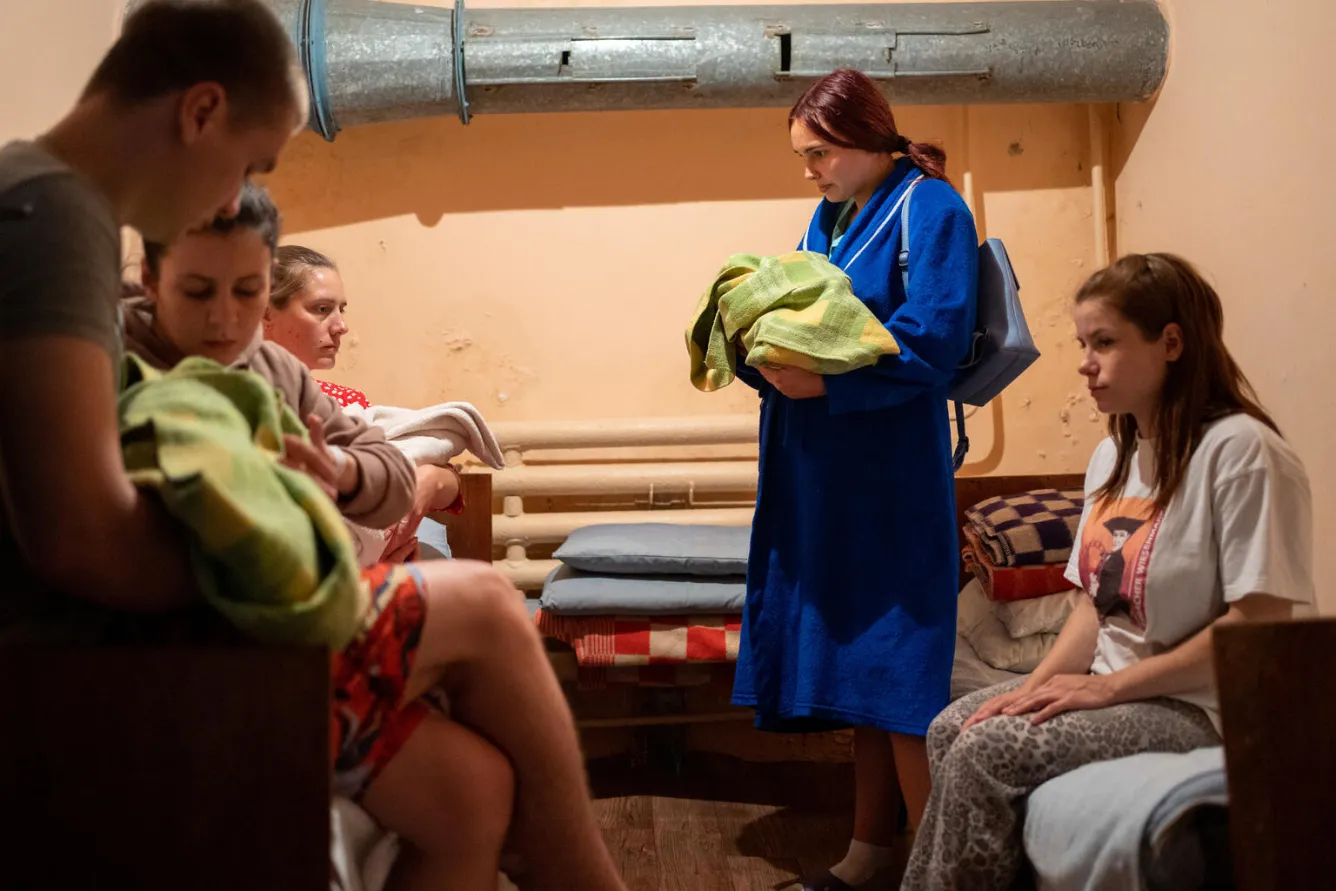
"It's still dangerous,” says midwife Oksana Pashkovska, who is watching over the mothers. “Our city has come under severe gunfire. That's why we never ignore air raid sirens.”
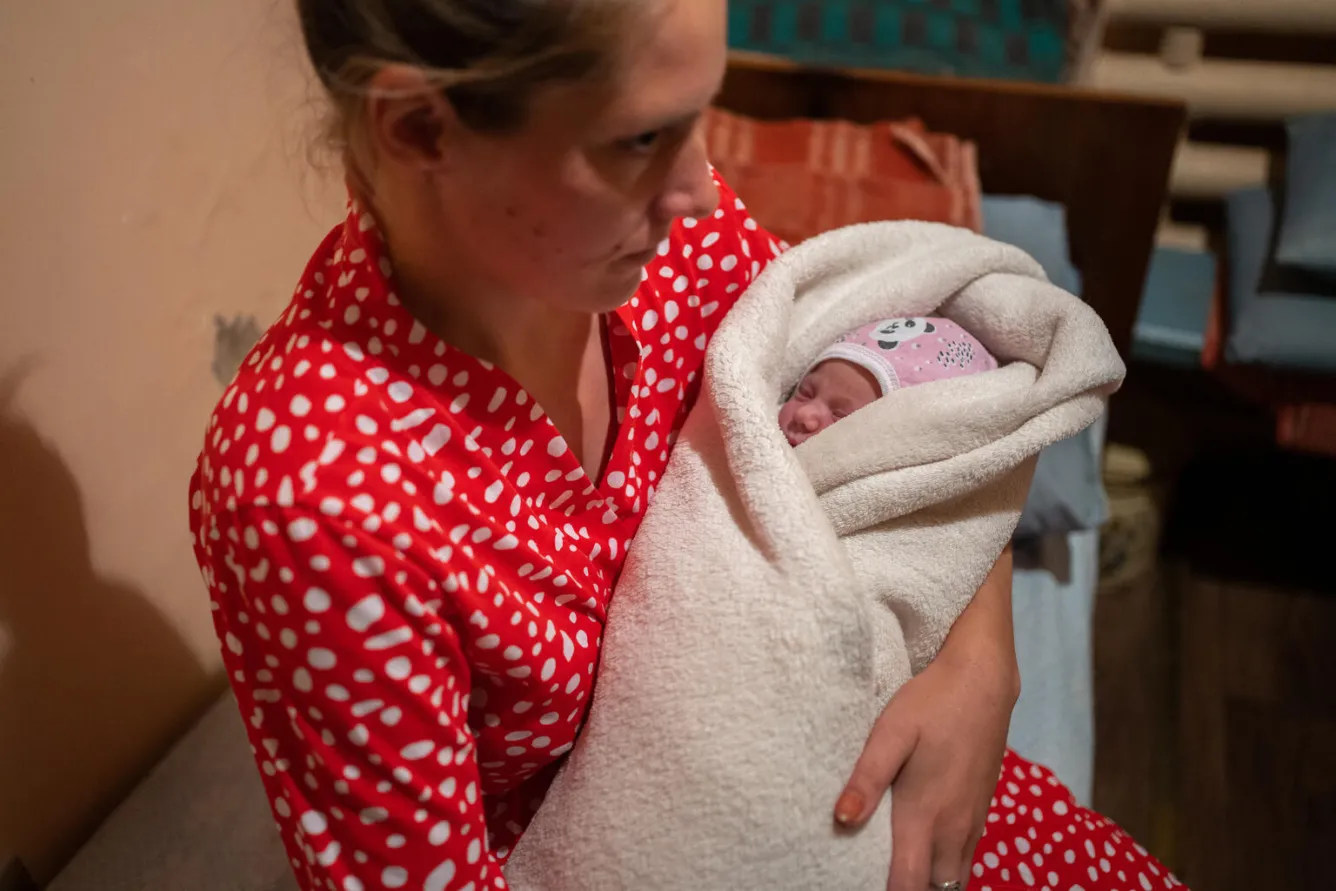
Senior midwife Olha Bahir is helping a young mother to cradle her baby. She says that air raids like these have become part of their daily routine.
"Our bomb shelter is in terrible condition, it is not suitable for hiding, except for the fact it is located in the basement,” says Bahir. “Still, it needs a major repair.”
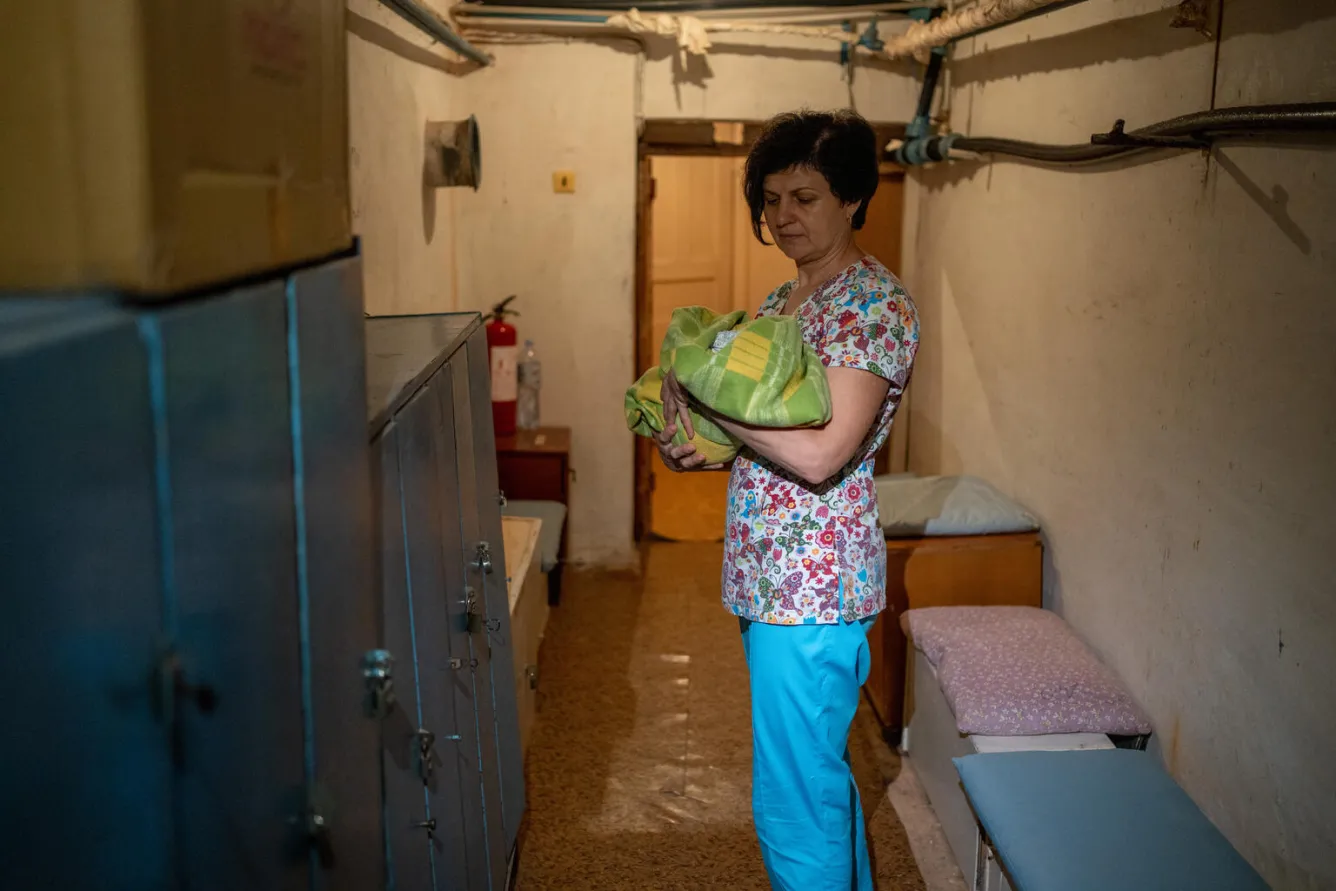
Sometimes, air raids happen several times a day and even during the night.
"Sometimes, we stay in the shelter for hours,” says Bahir. “Air sirens can last for three hours. So, we have to stay in there and turn on the heaters. Our conditions are not convenient, but it's at least something.”
Approximately 40 babies are welcomed into the world at this hospital in Shostka every month.
"It's not a lot, but thanks to God, women keep giving birth, despite the war,” adds another midwife, Oksana Pashkovska. “We love our job because life must start here, despite everything.”
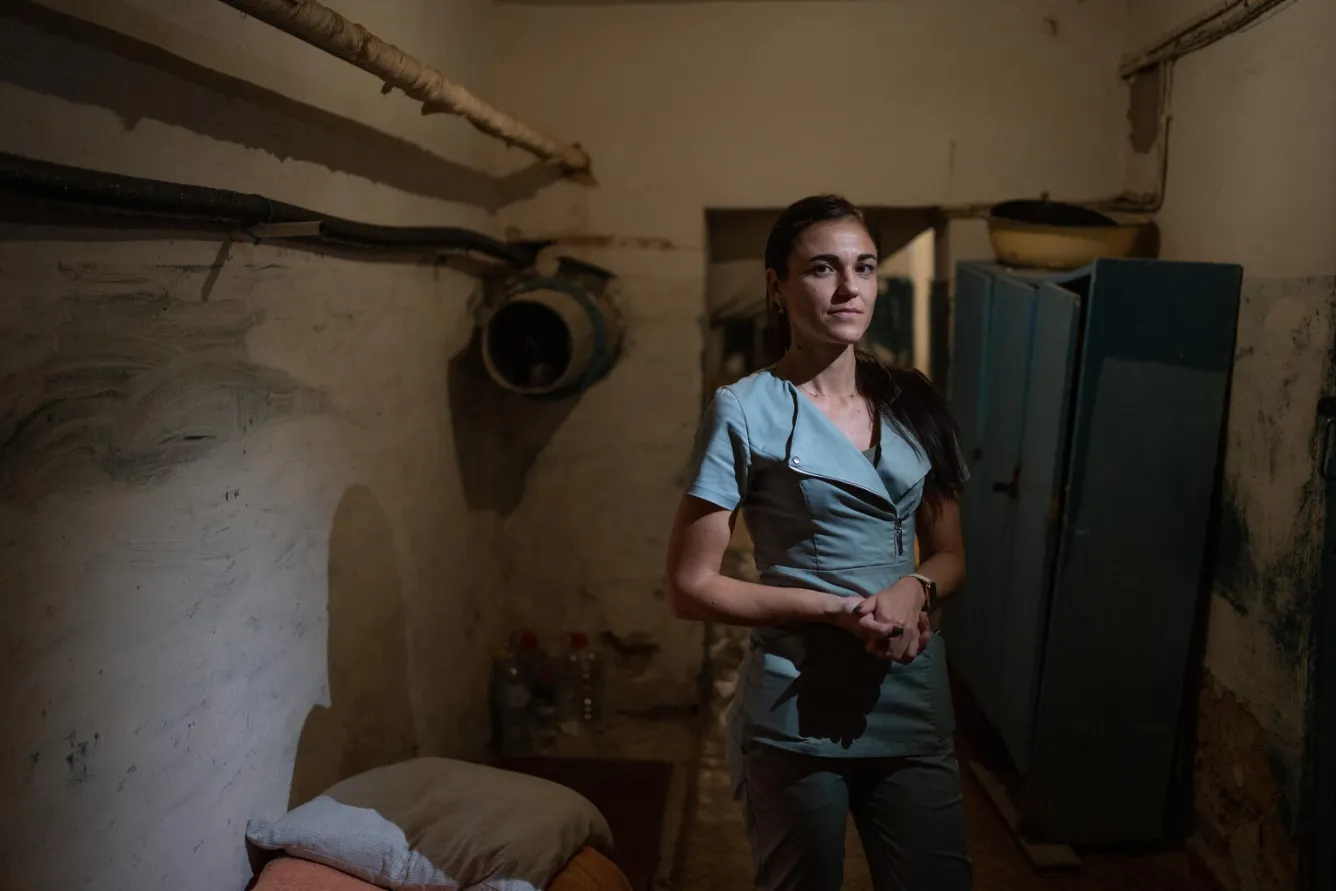
The maternity department at the Shostka Central District Hospital has been working with the United Nations Children's Fund (UNICEF) on the Child Friendly Hospital initiative and on programmes that provide training courses for doctors. Since the outbreak of the full-scale war in February, UNICEF has also delivered crucial supplies to the hospital, including portable incubators for premature babies.
"UNICEF provided us with Baby Box supplies and a lot of other necessary equipment,” says Bahir. “This support is very important now, during the war, as our hospital can’t cope with war challenges on our own.”
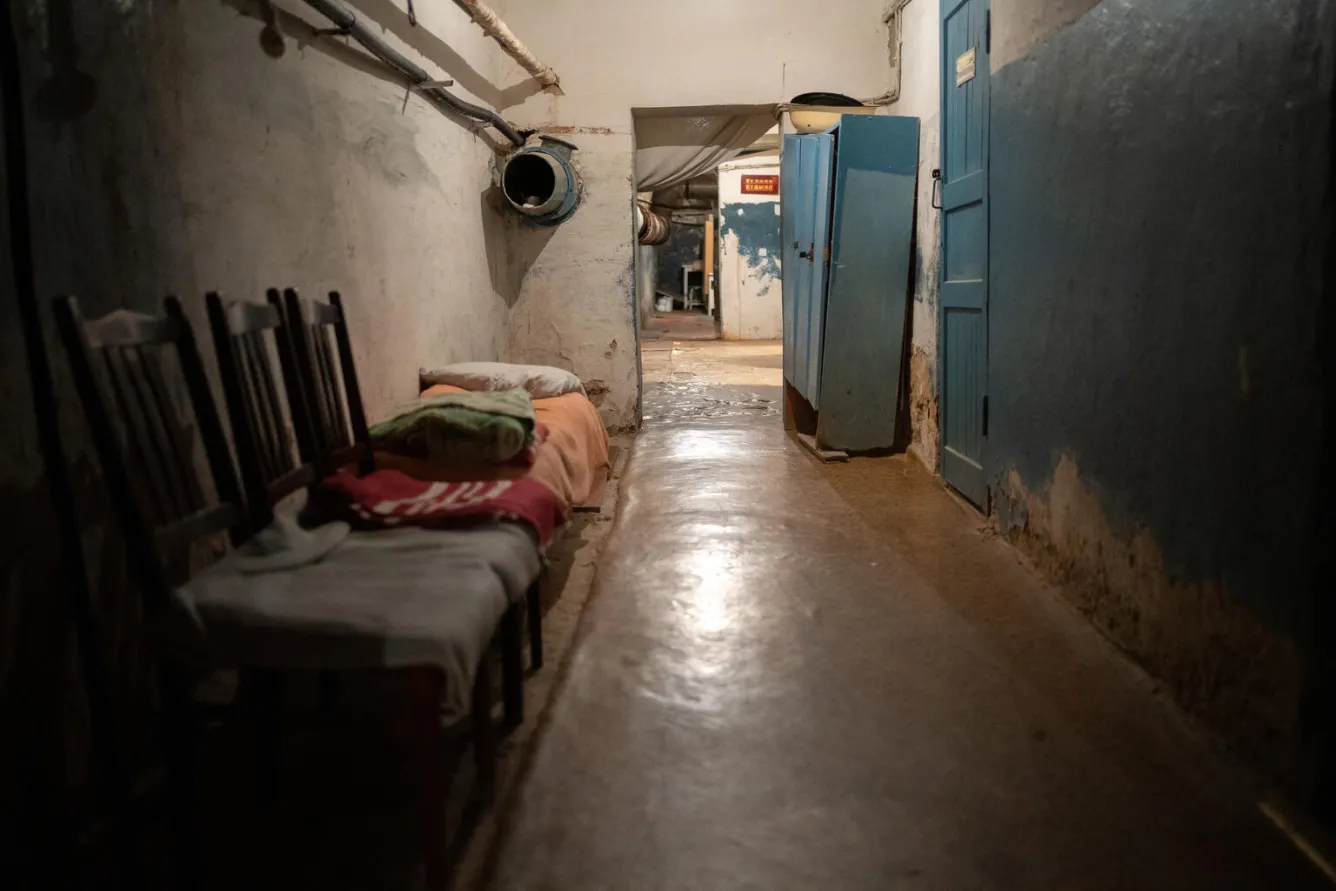
The maternity department at the Shostka Central District Hospital has been working with the United Nations Children's Fund (UNICEF) on the Child Friendly Hospital initiative and on programmes that provide training courses for doctors. Since the outbreak of the full-scale war in February, UNICEF has also delivered crucial supplies to the hospital, including portable incubators for premature babies.
"UNICEF provided us with Baby Box supplies and a lot of other necessary equipment,” says Bahir. “This support is very important now, during the war, as our hospital can’t cope with war challenges on our own.”
